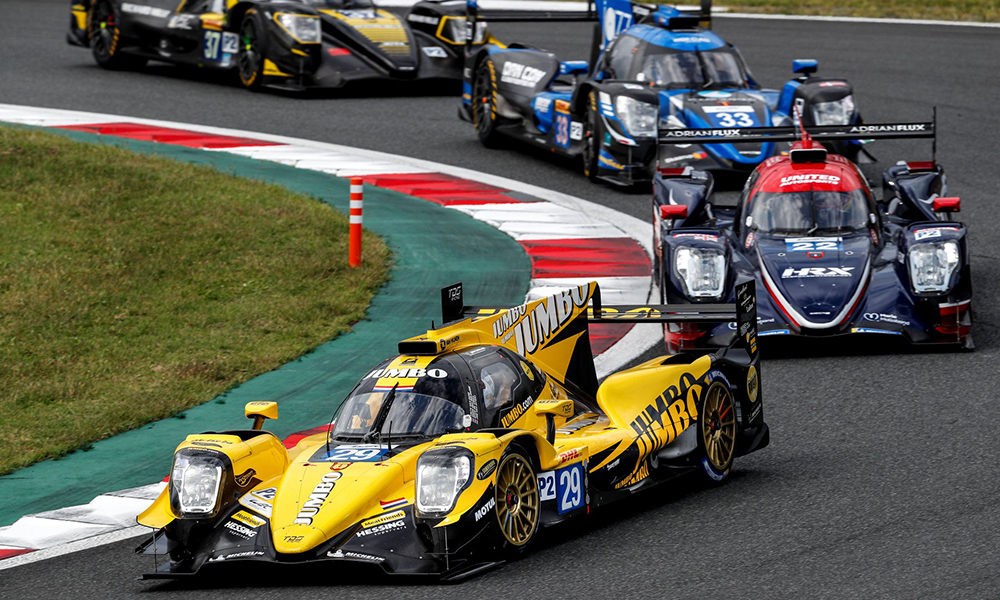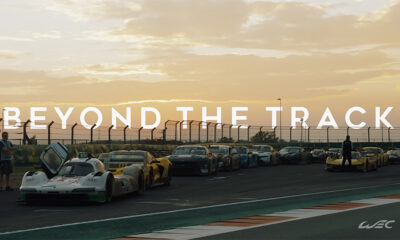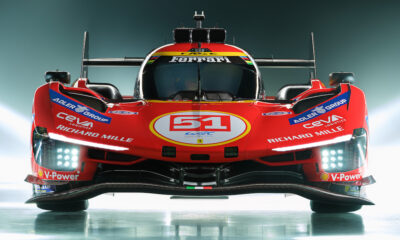
Photo: Racing Team Nederland
ACO sporting director Vincent Beaumesnil believes that any significant changes made to the current-generation LMP2 platform would have been a “big risk” given the category’s success in the FIA World Endurance Championship and European Le Mans Series.
Confirmed by the FIA last week, the regulations for the Pro-Am-enforced prototype class have been extended by an additional year, making the current platform eligible through at least the end of the 2022 ELMS and 2021-22 WEC seasons.
It will come, however, with a reduction in performance beginning with the 2020-21 WEC season, due to the launch of the ‘Hypercar’ class that will see slower speeds in the top category.
Speaking during last weekend’s WEC round in Fuji, Beaumesnil said that feedback from LMP2 teams was the driving force behind the extension, which will now give the current platform six years of eligibility, with the possibility for it to be extended even further.
“The conclusion was that, first, it would be silly to modify the cars for Hypercar in September 2020 and to change them again one year after,” Beaumesnil said.
“We decided that whatever we do, we make one change on the car in September 2020 and we don’t start a new period one year after.
“Also, we understood from the teams that, for budget reasons and because stability is good, and also if you look to LMP2, I think it’s successful. We have a lot of cars racing in secondary series.
“It’s not all perfect. Of course, we would prefer to have more chassis diversity, but it’s what the market and the sport have decided.
“It would be a big risk to make big changes when we have such a success…
“So we say stability, we don’t change the cars, so the teams don’t have to make expenses, and we will try to reduce the performance of the cars in September 2020 by the parameters that we can move without modifying the car. Engine power, things like that.”
Beaumesnil said the exact parameters for the performance reduction have not yet been defined although he downplayed the possibility of adding weight to the cars due to the current chassis homologations.
Sportscar365 understands that a reduction of maximum RPMs is among the leading options.
“The principle is that we don’t touch the chassis, because we don’t want to force the teams to buy new bodywork and other things,” Beaumesnil said.
“So we go for two years like that, a minimum of two years. So it can be two years or it can be more, but we have committed for two years.
“Considering Hypercar is coming, it’s good to wait a little bit and see what happens, to decide what we will do with LMP2 in the future.
“It could have been maybe a bit early to make important changes on LMP2 now, considering. But in a few months the new Hypercars will be on track so we will see what happens.”
The slowdown is expected to be in the five-second range at Le Mans, which roughly translates to one or two seconds at a typical circuit, according to Beaumesnil, who believes the change could come as a benefit for gentlemen drivers.
“We hear from the teams that they think it’s not bad news for them,” he said. “LMP2 is a very high-level category with pro drivers, but not only pros.
“For the other drivers, the car is a weapon. They are very tough and fast to drive.
“They are the customers, and I think for them it’s good that the car will be a bit less difficult to drive.”
Although it is yet to be confirmed, Beaumesnil hinted that the reduced performance will not be rolled out into the ELMS until the 2021 season.
“The principle is that when we do something in WEC, ELMS follows the following season,” he said. “If you [do it for 2020], then you go to Le Mans, you have to raise again the power.”
He said there are no plans to adjust the performance levels of the other classes and feels there will be “enough of a gap” between LMP2 and LMP3, despite the previously announced power boost for second-generation LMP3 machinery for next year.
Plans for LMP2 beyond 2022, meanwhile, have not yet been determined and could depend on the rollout of Hypercar.
“When you have something successful, it’s not really the best time to reinvent the wheel,” Beaumesnil said. “If you are in difficulty, you do have to reinvent.
“When Porsche and Audi left, we reinvented the wheel.
“With LMP2, we will see, but it’s impossible to say what we can do after. It can be very similar cars, maybe closer to Hypercar. We will see.”
Daniel Lloyd contributed to this report

























